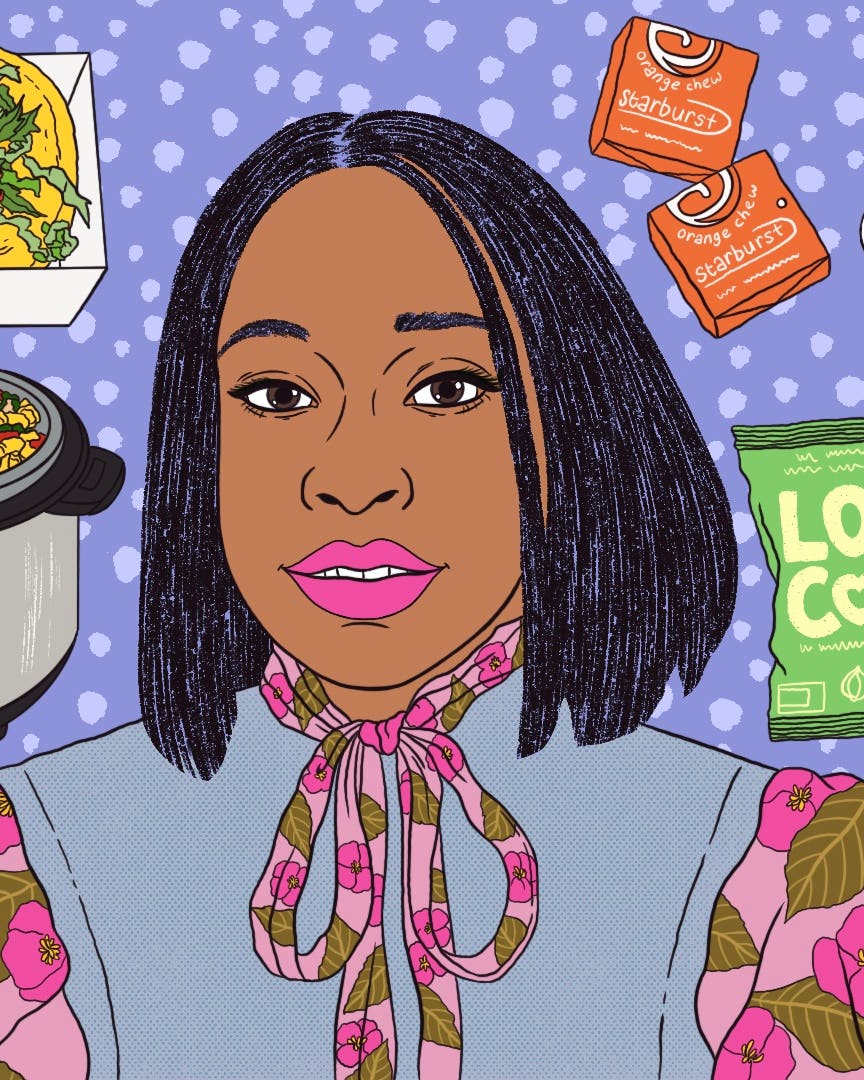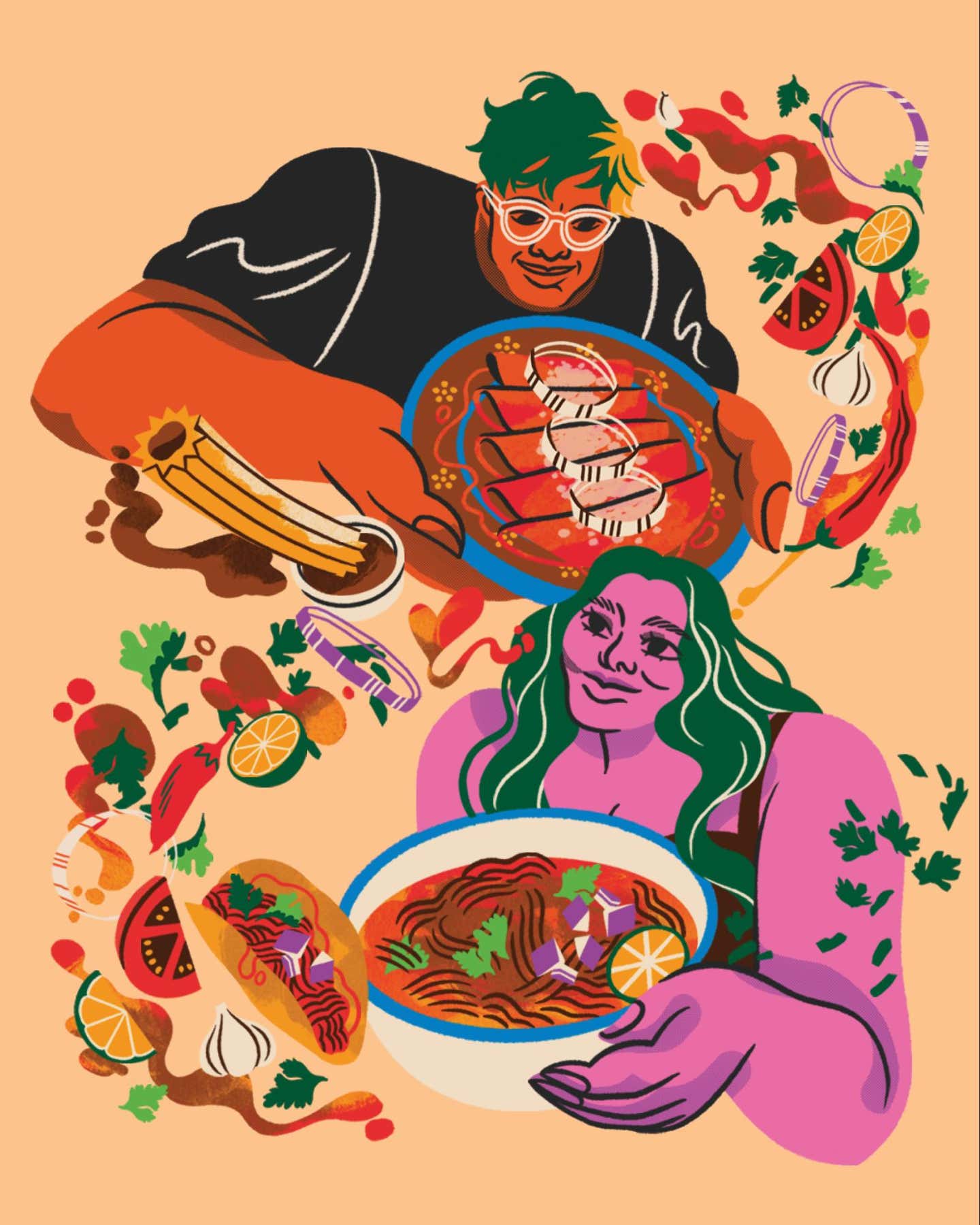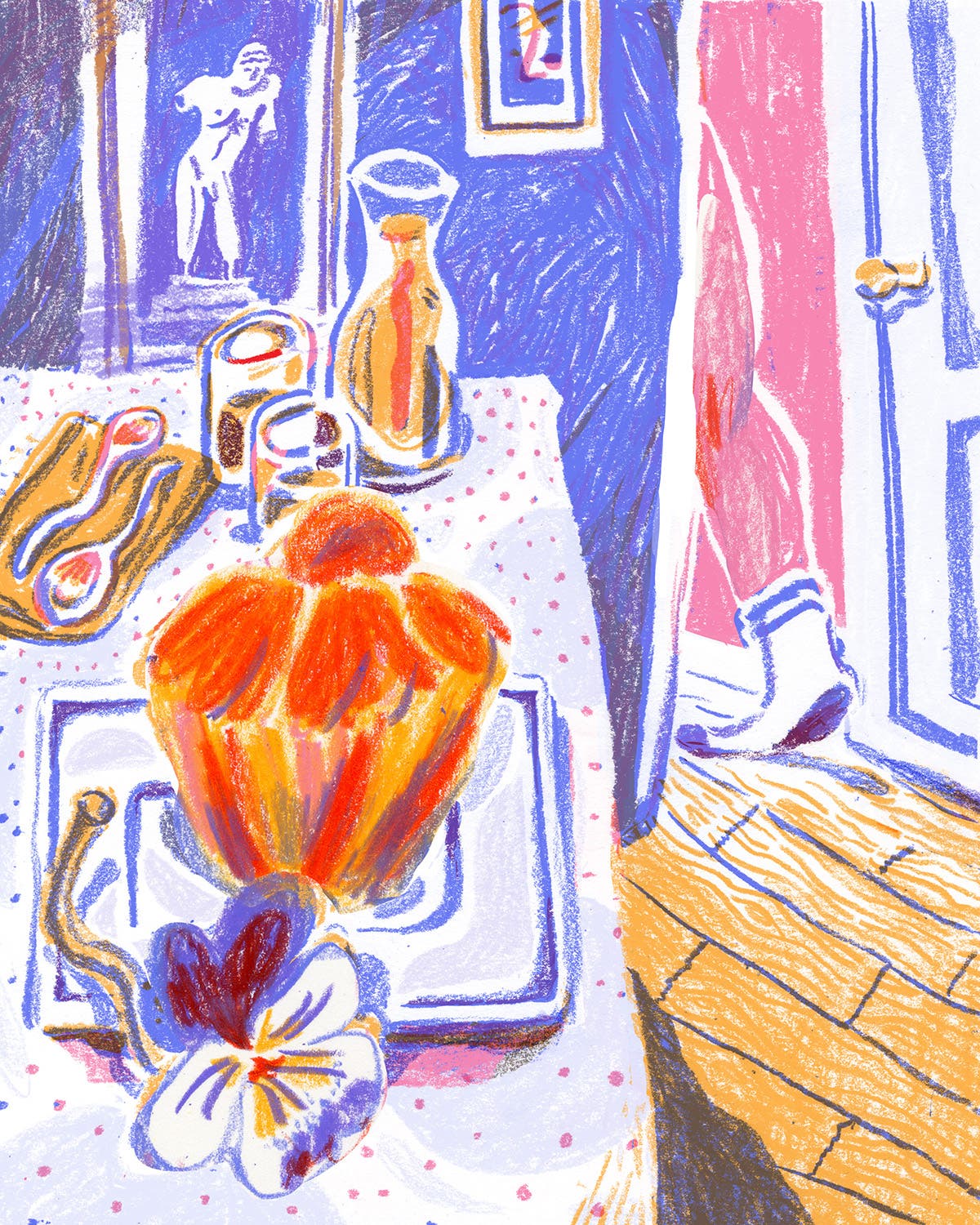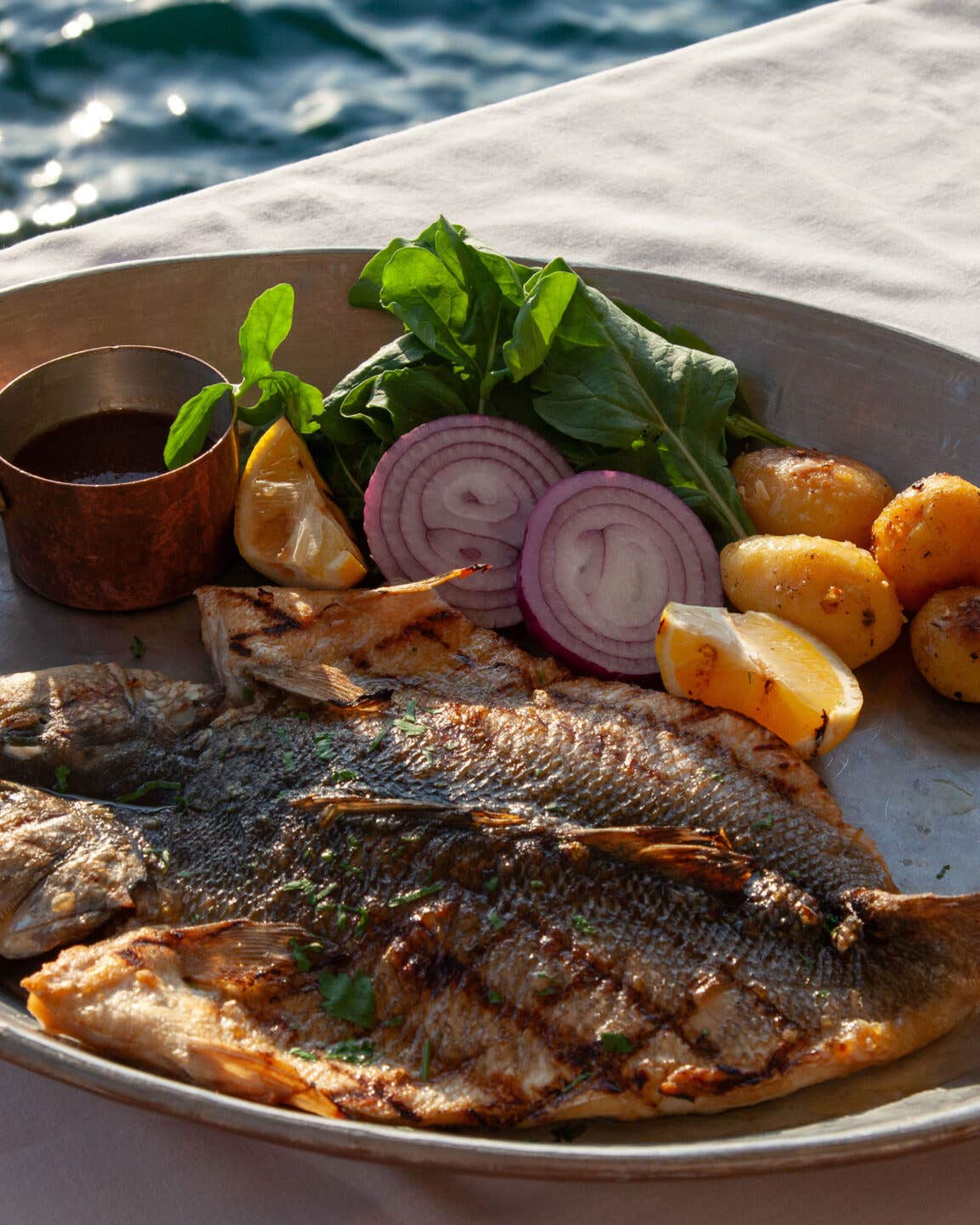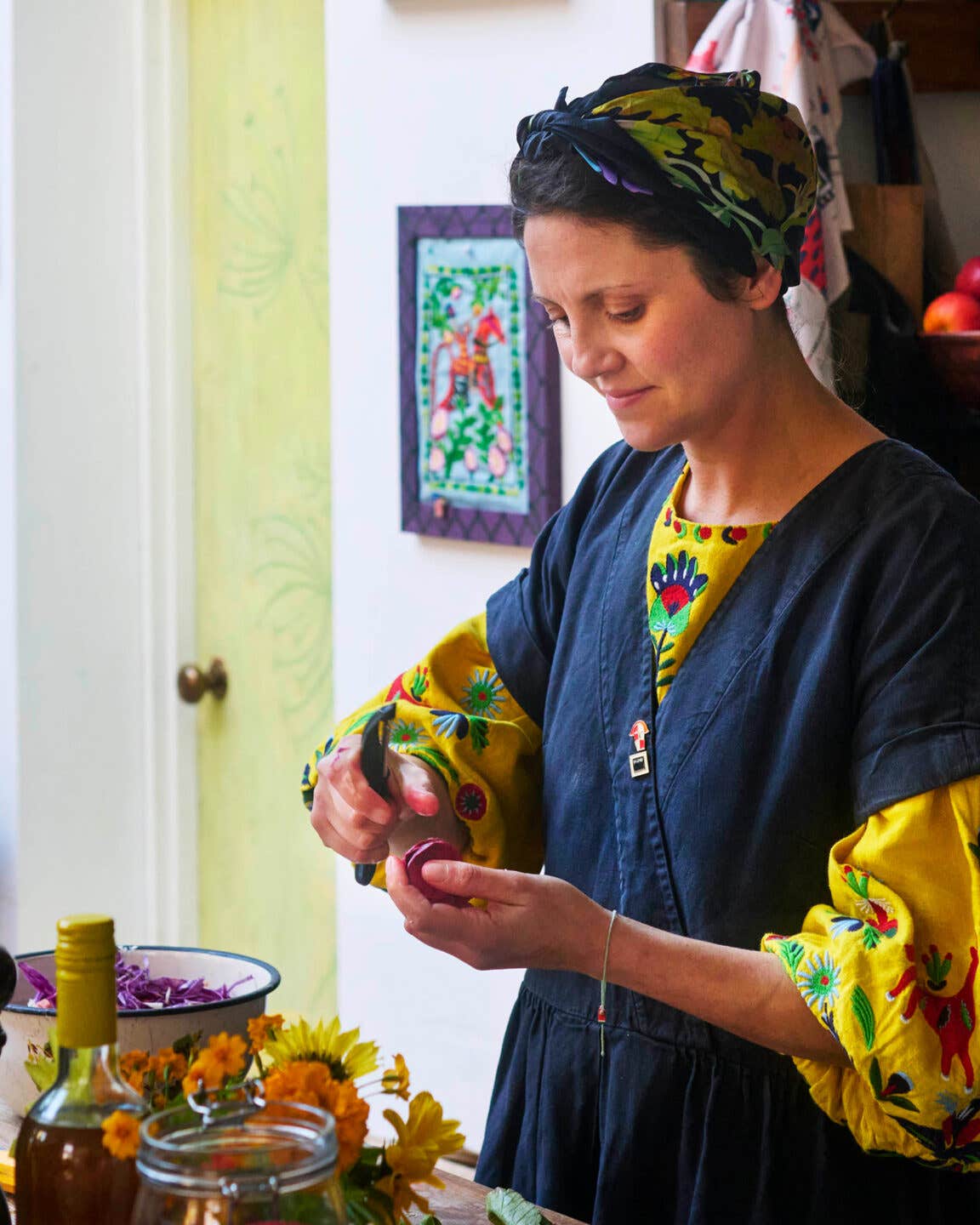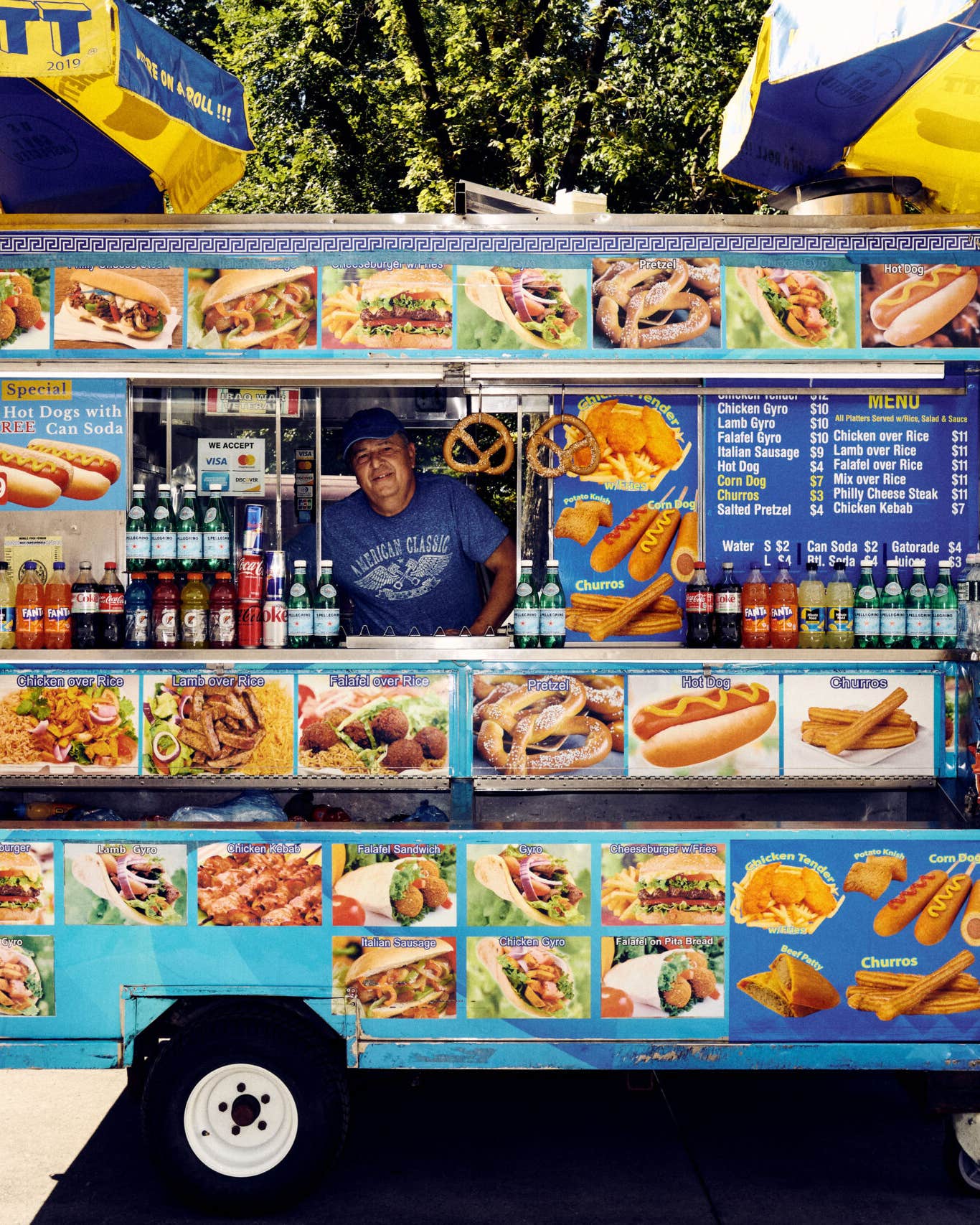
The Plate Debate
Not so long ago, the closest thing America had to a public debate on food was the question of whether McDonald's served the best french fries or whether Burger King did. That the landscape has changed—and it takes just one look at the organic-groceries isle at the local WalMart or the food books lining Barnes and Noble's shelves to confirm that it has—is due in large part to the efforts of a brigade of activists, farmers, chefs, environmentalists and writers who are intent on challenging the American culinary status quo. After years of eating with our eyes closed, we consumers are being urged by these reformers to look critically at the victuals on our plates and embrace good food as a political issue worth rallying around.
Out of this chorus, Michael Pollan, Knight Professor of Science and Environmental Journalism at the University of California at Berkeley and contributing editor to the New York Times Magazine, has emerged as a curious and sharp-witted pied piper, leading the public toward a better understanding of what we eat, how it's grown, and why. In his 2006 best seller, The Omnivore's Dilemma, Pollan traced four meals through the dysfunctional channels of the modern American food chain and across the fields of corn and industrial feedlots, sussing out the environmental and ethical implications of our menu choices along the way. Although Dilemma took readers on an illuminating and educational journey, when the last page was turned one practical question remained: Given the mixed-up state of our foodways, what should we eat?
This month, Pollan returns with an extended answer in the form of a new book, In Defense of Food: An Eater's Manifesto. Picking up where Dilemma left off, he dissects the ways that aggressive food marketing, reductive nutritional science, and myopic journalism distort our understanding of a good diet and argues for a return to a commonsense, simple approach to eating. As a manifesto, Defense makes demands at once revolutionary and pedestrian: whenever possible, forgo the supermarket for the farmers' market; reject foods that make health claims; and don't eat anything your great-grandmother wouldn't recognize. The result, he maintains, will be lives that are not just healthier but happier.
SAVEUR spoke recently with Pollan from his Berkeley, California, home about his new book, the politics of the plate, the tyranny of nutritional science, and why, when it comes to square meals, Mom really does know best.
This seems an odd time in which to offer a defense of food, since if you open a newspaper or turn on the TV you'd think we were in the midst of an explosion of popular interest in chefs and cooking. Why do you believe food needs defending?
The way I see it, food is under attack from two corners. One is the food industry, which is busy turning perfectly good food into abhorrent, complicated products. The example I cite in the book is "whole wheat white bread", which is a new, 40-ingredient monstrosity, designed by Sara Lee and some other companies, that has all the tactile pleasures of Wonder bread and "whole grain goodness", too. Real bread needs to be defended from imitations like that.
Food is also under attack from nutritionists and a nutritional-industrial complex that encourages us to look at it strictly as a conveyance of nutrients and which elevates the question of health above all others. To ask only Is this good for your body? Is this going to make you live longer? Is this going to help prevent heart disease? is a very limited and even counterproductive way of looking at food. So while, yes, food certainly has supporters right now, they're a pretty elite group. The attack, on the other hand, is widespread and includes just about everything going on at the average supermarket.
Your book's first chapter chronicles the rise of what you call "nutritionism". What's the difference between nutrition and nutritionism?
Nutrition is the science of nourishment; it examines the food we need, breaks it down, and analyzes the components. Nutritionism is the pervasive ideology that has grown out of that science; it looks at food as simply a collection of nutrients that can be redesigned to improve health.
The food industry loves nutritionism because, basically, since nutrients are invisible and incomprehensible to most of us—who the hell really knows what cholesterol is or what an antioxidant is?—it means that we have to depend on experts and food scientists to explain and give them to us. Any product can be rejiggered so that it contains oat bran or omega-3s or whatever is the nutrient of the moment, so suddenly we find ourselves in a situation where the people manufacturing processed foods have an edge over the people growing cauliflower. That leads us to create more and more processed foods, all of which are supposedly designed in the name of better health.
But the reality is that our knowledge is not perfect enough for us to design foods to make them healthier. We simply don't know enough. Everything we think we know is disproved every couple of months. Nutrition science is sort of where surgery was in 1650. Would you have chosen to have elective surgery in 1650? I don't think so. For the same reason, I am not prepared to let food scientists decide my menus.
Many of the conclusions you draw about what to eat—like "avoid all foods that make health claims"—embrace the counterintuitive. Should we all just do the opposite of what we're told is good for us?
When I say avoid food products that make health claims, it's not necessarily because those health claims are untrue, though they're likely based on pretty lousy science. It is because when a food makes a health claim, it probably has a package to make the health claim on—and if a food is in a package, it's a processed food. The most important distinction we can make is whether a food is highly processed or whether it's whole food. I wouldn't say the answer is to always do the exact opposite of what the nutrition scientists are telling you, although, frankly, if you'd done that for most of the past 30 years you would probably have turned out okay.
You've just written about the farm bill for the SAVEUR 100, and one of the refrains in your book seems to be that there is a fundamental conflict of interest at work when governments get involved in the role of food authority. Do you believe that the cause of eating well is inherently incompatible with politics?
Yes, but it doesn't have to be that way. In this country, the mistake we made was giving the role of advising people on nutrition to the department that is also responsible for selling food. The USDA has a real conflict of interest about what it does. It's in business to promote U.S. farms and agribusiness corporations, but it is also charged with telling us what to eat. So, lo and behold, what it encourages farmers to grow the most of—which is to say, refined carbohydrates and meat—is what ends up in the food pyramid.
And because the USDA is afraid to ever say a discouraging word about any particular food, it has seized on nutritionist vocabulary. They couldn't tell people to eat less red meat, so they say reduce your saturated fats, choose foods with less saturated fat—but no one really knows what that means. Simple messages about food are forbidden, because the USDA is beholden to the meat industry. One of the ways in which this is a political book is that I am suggesting that the information the government is giving us is corrupted by corporations that have an interest in selling us as much food as we can possibly eat.
Yet you often return to the subject of shopping and eating as a way of exercising a vote, itself a political process. How do you see that playing out?
People voting with their forks have already brought substantial changes to the food system. Look at the growth of the organic movement, which had very little help from the government until recently, and you can argue that the government is still not helping. That movement was created by consumers working directly with producers and voting by spending extra dollars on a different kind of food, a different kind of agriculture. Now we're seeing, with grass-fed beef and pastured poultry, that there is a market for that, too, and it ends up having a demonstrable effect on the landscape and the way animals get to live.
That's part of why I think people feel good at the farmers' market: they're supporting farmers, and farmers are preventing sprawl from reaching any further into the countryside. At a time where the public doesn't really feel that their political will gets represented in Congress, this kind of direct voting with consumer dollars is very empowering. The problem is, of course, the people who don't have the extra disposable income to make such choices. They need changes at the policy level in order to reap the benefits.
I wanted to ask you about that. One of your arguments is that in order for food to be seen as a more valuable part of society, we have to be willing to spend more money on it. How do you defend statements like that against critics who see this all as a terribly elitist pursuit?
Right now, arguably, the food movement is elitist. But the same was said once about abolition and women's suffrage and the environmental movement. Social movements begin as elite movements because people with extra money have the resources and the leisure to devote themselves to change. I don't think we should condemn a movement just because it begins with the upper middle class. If it stays elitist, yeah, you have a problem. But the influence of an elite movement can trickle down. Just look at the fact that organic food is now in Wal-Mart. It's a mixed blessing, but it does suggest that better food is now being made accessible to what is, demographically at least, the bottom half of the country. These movements may start in one part of society, but they often end up somewhere else.
Well, it's not Wal-Mart, but you did have a very public debate last year with John Mackey, the CEO of Whole Foods, regarding the lack of support for local food in their stores. Have you kept in correspondence with Mackey or noticed any encouraging changes in their policies?
I have not been in touch with Mackey since he came to Berkeley and we did an event onstage [at the UC Berkeley School of Journalism]. I am in touch with people at Whole Foods from time to time, but I really haven't done the due diligence that is required to see whether they're keeping the promises they made. I'm hoping that another journalist will do that, honestly, since it's awkward for me, given the way I became part of the story. But I'm very curious as to how thorough their commitment is.
When I'm traveling I try to go to Whole Foods and interview the produce manager and the meat manager and see what's happening in different locations. I've heard that there have been some very positive things changing on the produce side and that local farmers feel they're getting a warmer welcome. But people selling meat report much more mixed feelings. I think it's uneven. And I don't know how sincere Mackey's commitment is to local food since he's also giving speeches saying that supporting local food is selfish.
Why is that?
Because you're not giving your dollars to peasant farmers. I think that's a debater's point, though, because when you buy asparagus, the pennies that go back to Chile tend in large part to go into the pockets of companies like Dole, not to small farmers. There may be some fair-trade schemes that are effective, but on balance, if I spend the same money at the farmers' market, I know that 100 percent of that dollar is going to the farmer. We need to have local food systems all over the world.
You are unabashed about the fact that many of your food "rules" involve doing more work. Do you think some of our issues with food derive from the fact that the pleasure of eating now seems mostly about consumption, not the act of cooking and sharing?
I'm not sure I buy that, honestly. I never see people any happier than I do on Saturday mornings at the farmers' market. Everybody seems like they're high or something. And some people, at least, are getting great pleasure out of cooking again. Then you have the weird phenomenon of all the people who watch cooking on TV….
What do you make of that?
My fear is that it is discouraging us from cooking by making it look more complicated than it is. I worry it that because we are watching these professional chefs—who are, by the way, making banquet food, by and large—it looks like you have to have a big, honking stove and a whole lot of equipment and time and a very sophisticated type of knowledge to accomplish anything. Those chefs are not demystifying cooking in the way that even Julia Child did; in fact, they are mystifying it.
Also, frankly, a lot of what we watch on television has the effect of pinning us to our couches and watching more television. Whether you're watching a cooking show or pornography, both of those things make doing the real thing seem daunting.
Have we become so alienated from the act of cooking that we don't know what to do with real food when presented with it?
The decline of cooking as an everyday activity is definitely part of the problem. In our culture, cooking has become a spectator sport. For the past 50 years, we have outsourced most food preparation to corporations and restaurants, and so that muscle that tells us how to deal with whole foods and how to turn them into delicious meals has atrophied quite a bit.
A big part of my point is that simply by cooking, you can solve almost all your health problems around food. For instance, if you want to have french fries, fine, as long as you cook them—but how often will you really cook them? They are a lot of work to make, they are messy, and, in the end, what do you do with the oil you have to clean up? My son likes to make french fries, but he sure doesn't want to do it every night.
So, simply having to cook automatically moderates people's diets?
Yes. One of our problems is that, if you look historically, much of the food we now think of as "bad for you"—take fried chicken, for example—was not everyday fare. If you talk to people who actually prepared those foods in generations past, they say, "Well, you know, we only made that once a month because it was so much work that it was only worth doing if you had a party." What's happened now is that special-occasion or banquet food has become everyday food because somebody else is cooking and cleaning up the mess. I'm saying cook whatever you want and you'll be okay, because you'll cook fairly simply most days of the week. Then, if you want to make something incredibly fattening and complicated one day, be my guest.
That reminds me of the studies that were all over the news a few years ago about the benefits family dinners have for kids. Those focused on more than just health effects—like emotional well-being and academic performance—but, regardless, do you think that cooking and eating together played a role in helping them thrive?
Many, many things come out of having a family meal. For one, everyone is eating from the same platters, rather than in a restaurant where everyone gets their own entree and tends to eat more. Also, in general, cooked food does not have things like high fructose corn syrup or diglycerides in it. You do not find those things in your pantry.
The subhead of your book is "An Eater's Manifesto"—and manifesto is a pretty loaded word. If you see it as a call to arms, what is the battleground?
I call it a manifesto because it's about taking back control of our eating destiny from corporations that would like to do everything except digest our food and nutrition scientists who position themselves in such a way that they become a priesthood. I see it as less a war than an attempt at reformation. We need to democratize food, trust our instincts, and return control of it to ourselves and to our kitchens.
One friend of mine said that the book reminds him of Dr. Spock's book, and at first I had no idea what he meant. But then he explained that Spock's book came out at a time when women were getting all this expert and corporate advice about baby formula and new theories about child rearing. Dr. Spock came along told them, "Your mother was right, your grandmother was right, trust your instincts, you know all you need to know to raise a child well."
The same goes for food. We've reached a moment where we have overprofessionalized the getting and the preparing and the serving of food, and we do have instincts about food that we can get back in touch with. We also have a culture that can tell us all we need to know without science. We tend to privilege science in our culture, but food is one of the places where tradition really has the best information. Tradition is the distilled wisdom of the group, not just an old way of doing something. It means something.
Keep Reading
Continue to Next Story
